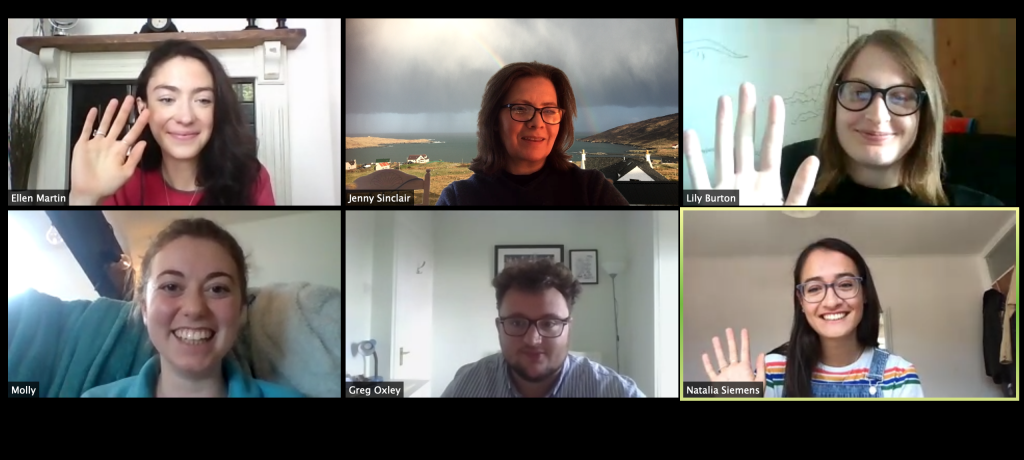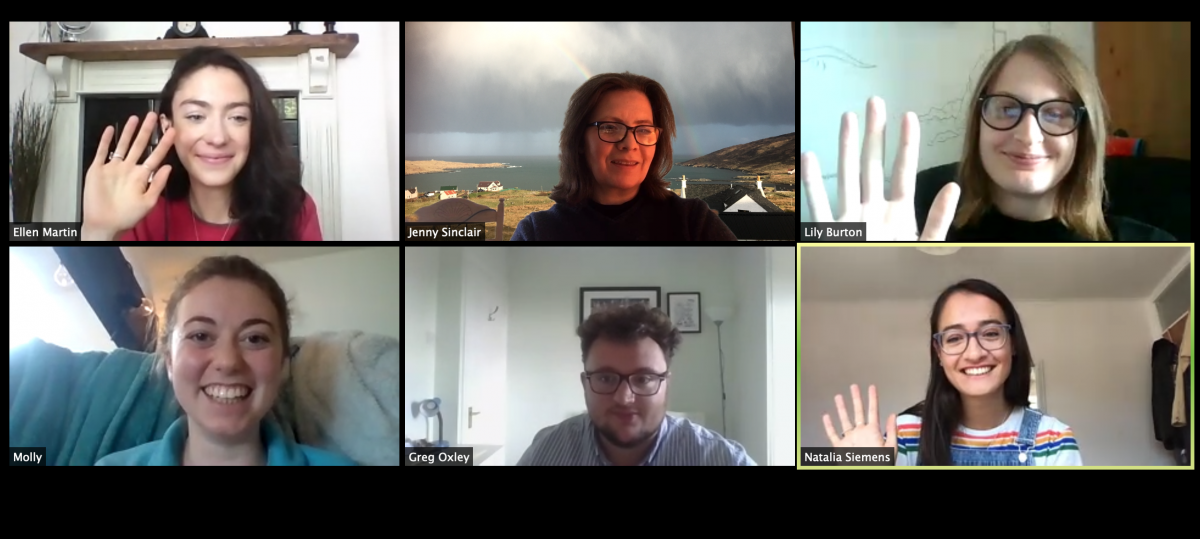
During lockdown T4CG held a number of online sessions for young adults, including one for the group of interns on the Faith in Politics programme. Ellen Martin, one of the group explains.
Run by the Catholic Bishops Conference of England and Wales (CBCEW) the Faith in Politics programme offers internships for graduates with a calling to public service and parliamentary vocations.
Opening the 90 minute zoom session Jenny, T4CG’s founder director, introduced the group to the inspiration and personal story behind the creation of Together for the Common Good, its growth into a recognised charity, its ongoing work and projects.
The group engaged with what is understood by the term ‘the Common Good’, about which the group had some awareness already having completed the internship’s master’s degree in Catholic Social Teaching. This session however focused in particular on the practical application of the term, and how the proper understanding of the principles of Common Good thinking will be pivotal in guiding the response to what will be a new era in a post coronavirus pandemic world.
Looking at policy through the lens of the Common Good, the group discussed the changes they would like to see catalysed by the crisis. This ranged from a new recognition of the dignity and status of all work and a re-evaluation of what should be regarded as ‘skilled’, a change in the approach to higher education that honours skills and vocational development alongside degree education; the discussion also touched on the need to decentralise the banking system in order to rebalance the power of capital in the interests of greater investment in regional and local business.
The group then listened to The Plague in the Parish, a ten minute recording of a letter released by T4CG and partners. The letter is inviting churches to respond to the new era by working alongside neighbours to rebuild connections and to help to galvanise the relational power that comes from local communities.
Greg Oxley who spent his placement as Parliamentary Assistant to Eddie Hughes MP, described this as a “really interesting discussion on the churches’ role in the renewal of civic life post-Covid-19.” Natalia Siemens, whose placement was with CBCEW as a Public Affairs Officer, commented that the crisis offered “a unique opportunity to pause, reflect and rethink” and that the session encouraged them to consider seriously how each of us has a responsibility to “bring forward the Church’s message at a local parish level.”
This opened up a new way of understanding what politics is about, notably distinct from party politics, and from local government and national politics with which they had been engaged over the past year. Introduced to the term ‘the body politic’, the group reflected on the need for stronger local civic immune systems, and how by standing together, communities will be better able to resist the fallout of the pandemic as it unfolds.
Drawing on their own experiences, be it participating in local facebook support groups, shopping for shielding neighbours or calling those who are isolated for a chat, the group noted how the crisis has revealed the potential for real power that can grow from local relationships. The group voiced some frustration about the role of the Church during the crisis, that it had lost a sense of its distinctive civic calling. There were concerns about decline and questions about who will lead the change that lay people want to see.
Molly Conrad, whose placement was as Parliamentary Officer at the Catholic Education Service, commented on “the great sadness not to be able to go to Mass” but highlighted also the sense of promise that lies in being a Eucharistic community engaged in the neighbourhood, where “Holy Communion has new meaning through seeing Christian communities join together as Christ’s body to share joy and kindness in such a fragile time.”
Reflecting on the next steps of their careers, be it in public service, politics or law, the group agreed they would remember the fundamental importance of community connections and the value of applying the principle of subsidiarity in decision making. Molly added that the “discussion really highlighted how integral church communities can be in society.”
Ellen Martin is a T4CG volunteer
This is an extract from our summer 2020 mailing. To access the full newsletter, packed with resources, click here.

